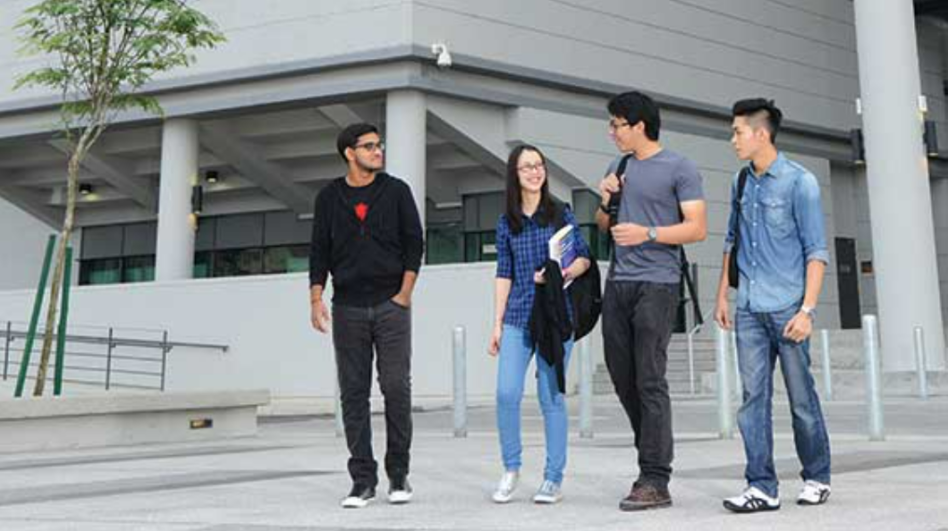
Are we honest about our higher education?

Letter to Editor
REFERRING to the comments titled “Has our higher education been mutilated?” by Ranjit Singh Malhi and “How good are our universities?” by Sharifah Munirah, we are asking ourselves whether we are actually honest about getting our higher education. Our long-term obsessions about getting higher education have created a lot of problems in our society.
Most of us have failed to examine our capabilities before admitting ourselves (or our children) to these institutes. Pushing students who have mediocre or poor high-school results into the traditional college route is counterproductive.
According to the book “The Case Against Education” by economist Bryan Caplan, going to college for weak students yields extremely low return of interests. For those who have excellent grades, it is recommended to go to the best college that is available. Else, do not go at all if the results are poor.
Weaker students have a higher risk of dropping out or being enrolled in a substandard institute. The better the schools are, the better connections the students will have after graduation, which then will provide better job prospects. In our opinion, colleges are not and never a place to fix poor high school results.
Unfortunately, many of us are still unaware about putting the wrong kind of people in the institutes. We have personally witnessed many who went to college with very poor pre-university grades and lack of interest in the course.
Some of them graduated and became underemployed or unemployed. A number of them dropped out too. Loans were defaulted and scholarships were revoked. Findings show that graduates who are underemployed are more likely to remain that way for their next job.
With all that, how is attending college a best thing to do when we do not clearly understand what we need? Are we supposed to pretend that these issues do not really happen to us?
We had inadvertently diluted the value of college by forcing ourselves into the mould, whether we could finish that course or not.
As parents, are we expecting our kids to graduate and immediately treat them as our retirement plans, since there is a perceived notion of getting big paychecks upon first employment? Or are we trying to make others feel inferior because some of us could not afford or not interested in going to college?
Rather than being honest about getting a higher education, we have now become very entitled and selfish individuals.
Communities are extremely split because many of us tend to look highly upon people with degrees. We do not need to look further to see this happening: Frontliners, sanitation workers, security guards and technicians are often being harassed.
This divide has been worsened when people now segregate themselves in online forums on which college they are graduated from. Mentioning about getting into mediocre institutes could result in insults being thrown at each other and any meaningful discussions about it will be instantly shut down.
Some of us are overly proud of our degrees until we have to step on each other to prove a point. In that case, having too many of these institutes around only serve to exacerbate the inequalities that have already existed.
When we mention about the troubles that were happening in our institutes, these do not mean that we are allowed to totally ditch our higher education. Colleges and universities are crucial in shaping our tightly-regulated professions such as architects, civil engineers, doctors, dentists, lawyers, scientists and surgeons.
If students are self-aware, these schools are a very good deal. However, these institutes are not always a one-size-fits-all solution to provide gainful employment to the people.
Our civic duties must include continuously pressuring the state to further extend technical and vocational training (TVET) to high schools. TVET provides them with hard skills that are transferable between jobs. At the least, our youths get to be employed earlier instead of floundering in college.
The state should be aggressively implementing tracking system in high schools to tailor the needs and interests of the students by streaming the students into academic or technical studies, as this is more effective in reducing the drop-out and failure rates.
It is also a better idea to implement more apprenticeship opportunities for high-school students. Sharan Raj from PSM mentioned that the state must regulate higher education and manpower planning instead of allowing excessive privatisation of colleges to happen all the time.
Plus, there is also a huge need to constantly call out errant schools in the media which are not delivering quality courses. Regularly spend time with our youths to discuss their strengths and their limitations. Assure them that all the education paths taken can lead to a gainful and successful employment.
Reminding ourselves of that question “Are we honest about our higher education?” again, we are also mostly responsible for the current state of this system.
The risk of becoming victims of violent crimes is higher if we continue to ignore this problem. It is a well-known fact that unemployment, underemployment, and income inequalities motivate criminal activities.
Understanding the roles of higher education and knowing our own capabilities and limitations are a good insurance policy that is worth investing. – March 31, 2022
Concerned citizen
Selangor
“Has our higher education been mutilated?”
ReplyDeleteWakakakakaka…
30+yr late!
cf: mara's giat tunas programs of 'uplifting' the so called "poor&weak" melayu pupils/students to spurious academia excellency.